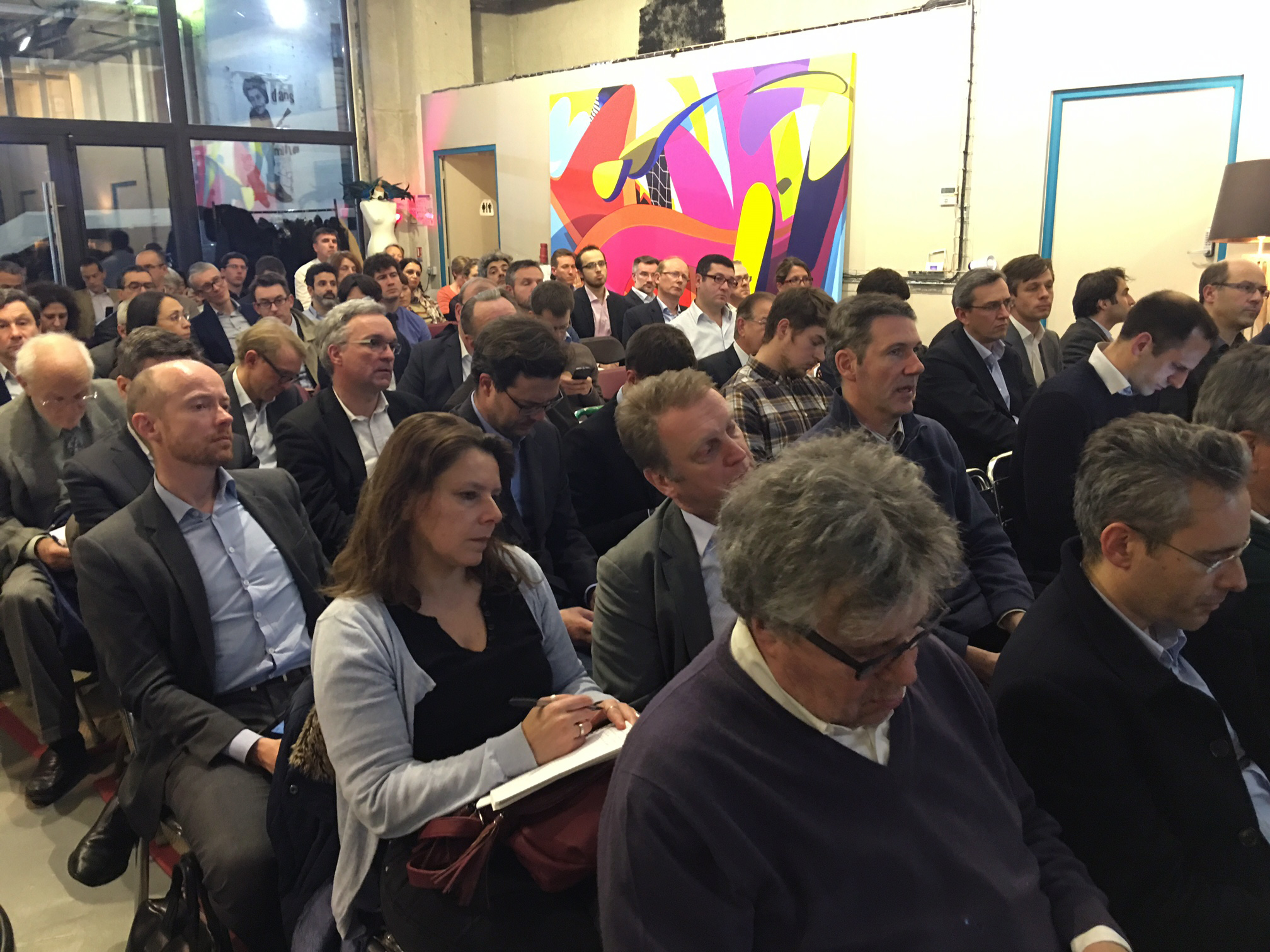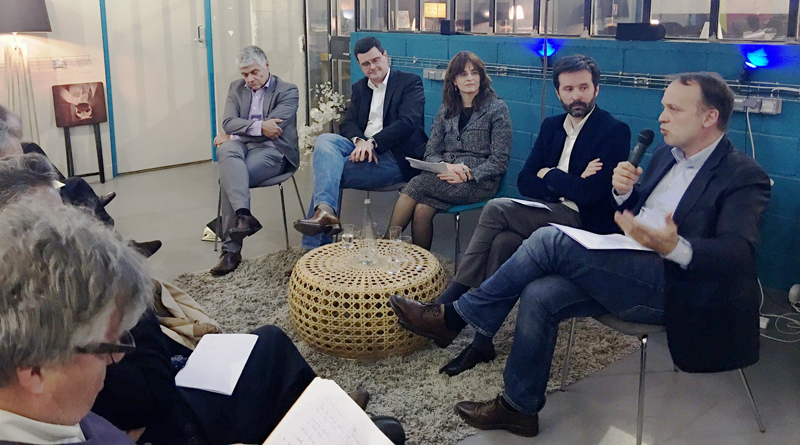On April 11, 2016, the HEC Advanced Technology Group organized a roundtable on the topic of the digitalization of capital-intensive industries. 120 people attended this sold-out event, which took place in the now well-known halls of Remix Coworking, rue des Petites Écuries. Albert Meige, CEO of industrial open innovation company Presans, handled host duties. The invited panelists were:
- Ghislaine Doukhan, Executive Vice-President Safran Analytics
- Jean-Philippe Desbiolles, Vice-President IBM Cognitive Solutions
- Denis Gardin, SVP New Technologies Ventures at Airbus
- Yves Le Stunff, Chief Digital Officer at Total Exploration & Production
- Robert Plana, Senior Engineer Emerging Technologies at General Electrics

What follows are Albert’s questions for the guest panel and the main takeaways from their answers and discussions.
How would you define B2B digital transformation?
Takeaways: The novelty of the digital transformation lies in the simplification of the access to any information or expertise. Alongside the tools making this transformation possible, a cultural and organizational shift is also taking place. The point isn’t to replace human intelligence and expertise, but to augment it. What is disruptive about the digital transformation is that information systems will behave more like humans in the way they process relevance. The digital transformation is structured around the goal of continuity between information systems, a development made possible by recent technological developments. Connectivity and reliability improvements make it now possible to deploy sensors extensively.
Is becoming a platform the end objective of B2B digital transformation?
Takeaways: The panelists are mostly concerned with keeping their systems, ecosystems, and environments open and adaptable to client needs. Different clients have different levels of digital maturity. A multiplicity of cloud platforms will coexist for the foreseeable future.
What upheavals do you expect in the value chains?
Takeaways: Even though there will be competition coming from digital pure players, the panelists believe that data alone is not a sufficient value proposition in the industrial world. A new space of value creation lies in the extraction of insights from unstructured, or « dark » data.
The digital transformation provides an opportunity to reexamine exactly where industrial players add value for their clients. The danger of intermediaries taking over customer channels is real. On the product-level, competitors enabled by new technologies and by crowdsourcing are taken seriously.
What are the different stages of B2B digital transformation?
Takeaways: Avoiding cultural or sociological resistance is a concern. Achieving digital continuity should not require systematically dumping legacy systems and having to rewrite everything from scratch. Changing mindsets and evangelizing is an important first step. Everyone must be on board of the transformation, and this can be achieved by demonstrating value. IT departments need to see their roles re-expanded. Change management is called for to overcome corporate silos and build trust and collective intelligence beyond the level of individual experts.
What is the final state of B2B digital transformation? Will digital reconfigure the very notion of an enterprise?
Takeaways: In fifteen years, the winners of the present transformation will be those who will have successfully overcome internal silos, built a way to collaborate and codevelop, and adapted themselves to real users, both external and internal. The world will be more open, borders will have faded. This requires letting go of control.
The pace of generational change has increased. This will induce major organizational changes.
The sharing economy will induce a horizontal reconfiguration within industries and value chains.
FOOD FOR THOUGHT BONUS QUESTION (from the audience):
« In order to change your mindset, isn’t it necessary to take some distance from what you currently have on offer, to move out of familiar territories, and to develop a long term vision based on demand factors, that also reexamines the business model? Because the barbarians do exist. They are not seeking to compete with us, what they are focused on is moving quickly on demand factors. »


